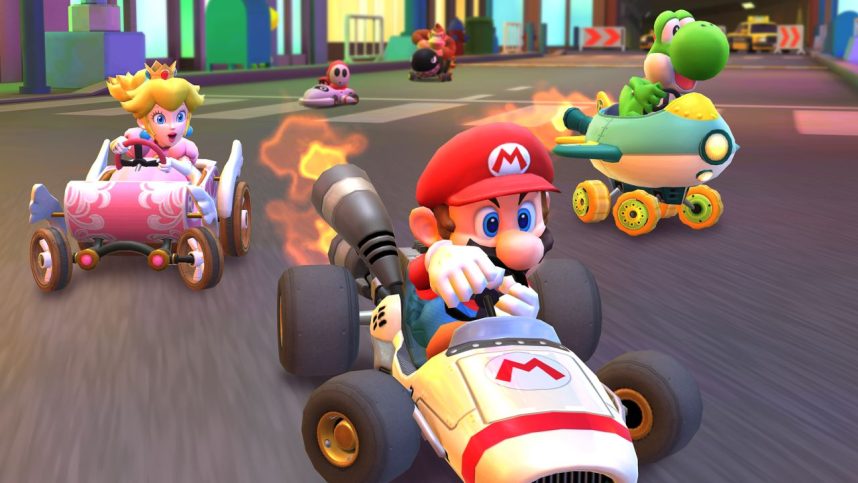Nintendo Facing Lawsuit Over ‘Mario Kart Tour’ Loot Boxes
Posted on: May 23, 2023, 07:55h.
Last updated on: May 24, 2023, 01:37h.
A new lawsuit in Washington State is accusing Nintendo of offering illegal gambling in its Mario Kart Tour game for mobile devices through loot boxes.

Mario Kart Journey was released for iOS and Android devices in 2019. The game allowed players to invest money to activate “gacha pipes.” The pipes gave players a chance to unlock prizes and upgrades through random gacha rolls and the game’s Coin Rush mode. Both offered chances to win upgrades using unlisted odds. Players could not directly buy upgrades until the September 2022 update.
In the 2022 update, Nintendo removed this feature from the game and replaced it with an in-game store, the Spotlight Shop, where players could directly purchase upgrades.
The current lawsuit argues that the gacha pipes promoted gambling because of the random nature of the rewards and because players were required to spend money to overcome obstacles and advance in the game.
Defendant’s lootbox mechanism capitalized on and encouraged addictive behaviors akin to gambling,” the lawsuit states.
The plaintiff apparently spent over $170 on Mario Kart Tour microtransactions with his father’s credit card.
The suit demands that Nintendo refund all minors in the United States who paid to use these pipes.
The lawsuit moved from Washington state to the federal courts last week.
Jurisdiction Differences
The subject of monetization in contemporary video games has come under the scrutiny of government and legal authorities in recent times. The US Federal Trade Commission imposed a penalty of $520 million on Epic Games, the creators of Fortnite, for resorting to deceptive norms to commit players into unwittingly making purchases.
Several European enforcement agencies have scrutinized FIFA Ultimate Team, an Electronic Arts game that yields billions of dollars, for potential involvement in illicit gambling practices. A judge in Austria has confirmed that stance, but only so far as it pertains to sales in the country. Elsewhere, the packs aren’t considered to be a form of gambling.
In March, a Canadian judge, Justice Margot Fleming, ruled that player packs don’t constitute as gambling because they can never be cashed out. Therefore, they have no real-world value.
A lawsuit over player packs in the Madden NFL video games was rejected because they don’t constitute illegal gambling. However, the judge allowed it to proceed on the allegations of “deceptive acts or practices.”
Related News Articles
ACLU Sues Fremont St. for Age Restrictions, Citing 1st Amendment Violation
Richmond, Virginia Nonprofit Seeks to Block Casino Vote
Landry’s Files Trademark Lawsuit Against Distillery Founded by Zach Landry
Most Popular
Las Vegas Overstated F1 Race’s Vegas Impact — Report
Vegas Strip Clubs Wrestle in Court Over Animal Names
ESSAY: Remembering ‘The Beatles LOVE’ in My Daughter’s Eyes
Most Commented
-
End of the Line for Las Vegas Monorail
— April 5, 2024 — 90 Comments -
Mega Millions Reportedly Mulling Substantial Ticket Price Increase
— April 16, 2024 — 6 Comments -
Long Island Casino Opponents Love New York Licensing Delays
— March 27, 2024 — 5 Comments -
Nearly Abandoned Mall Outside Vegas Soon to Have Only One Tenant
— March 12, 2024 — 5 Comments
















No comments yet